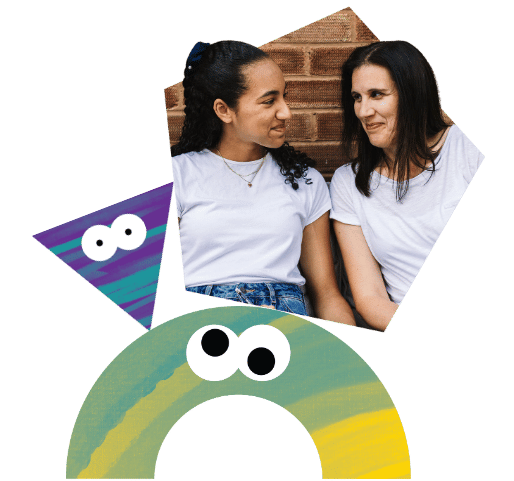Pathway for preteens and teenagers
Join our learning pathway for all preteens and teenagers: a journey of understanding emotional health, why you feel the way you do and how to manage these feelings.
Pathway stages
Bitesize stages for daily steps towards emotional resilience and connected relationships
1. Welcome!
1.1 Hi!
1.2 Our brain is changing
1.3 How our brain changes affect us
1.4 How is my brain changing?
1.5 Our brain and our feelings
1.6 So far and what’s next
2. Our feelings
2.1 Understanding our feelings
2.2 How we know we’re happy
2.3 How we know we’re sad
2.4 How we know we’re tired
2.5 How we know we’re anxious
2.6 Other people’s feelings and our brain
2.7 Our feelings
3. What to do with feelings?
3.1 What do people do with feelings?
3.2 Lock them in a cupboard
3.3 Trying to feel in control
3.4 Ignore them
3.5 Process them
4. Processing feelings
4.1 What’s next
4.2 Feeling worse
4.3 Feeling better
4.4 Containment: the basics
4.5 Containment: learning more
4.6 And more
4.7 What can happen when your head’s full
4.8 Making space in our mind
5. Feelings and thoughts
5.1 What can fill up your head?
5.2 Thoughts and feelings
5.3 Our feelings affect our thoughts
5.4 Our thoughts affect our feelings
6. You and COVID
6.1 The pandemic
6.2 Anything you liked?
6.3 How did COVID affect you?
6.4 Relationships
6.5 Rupture
6.6 Rupture and repair
6.7 Ruptures and repair in everyday life
6.8 COVID and you
7. Review
7.1 Our brain and our feelings
7.2 Recognising feelings
7.3 If emotions feel overwhelming
7.4 Processing feelings
7.5 Trying to do things differently
7.6 More about trying to do things differently
8. Last bit of the course
8.1 Conclusion
8.2 Congratulations and feedback questionnaire!
8.3 Acknowledgements and certificate
About this pathway
Puberty brings rapid changes to your brain, which can affect how you feel, think and behave. This pathway is a great place to start for teenagers who want to understand their emotional health, exploring why certain feelings arise, how to manage them and how to take care of themselves during this important stage of growing up.
Designed by our clinical child psychologists, psychotherapists and health practitioners, this pathway is practical, relatable and easy to follow. In bitesize stages, you’ll learn how the teenage brain differs from an adult’s, how emotions shift during puberty and how to express and process difficult feelings. Whatever your age or experience, the tools and techniques in this pathway are designed to help you feel more confident and connected as you move toward adulthood.
83% learners said they found the pathway helpful
“Would recommend teenagers who need more of an understanding of how to express and control feelings.”
Learner from the pathway
“It helped me understand a lot of things more.”
Learner from the pathway
“This course has really helped understand my thoughts and feelings, I would recommend it to everyone in the world if I could!”
Learner from the pathway

